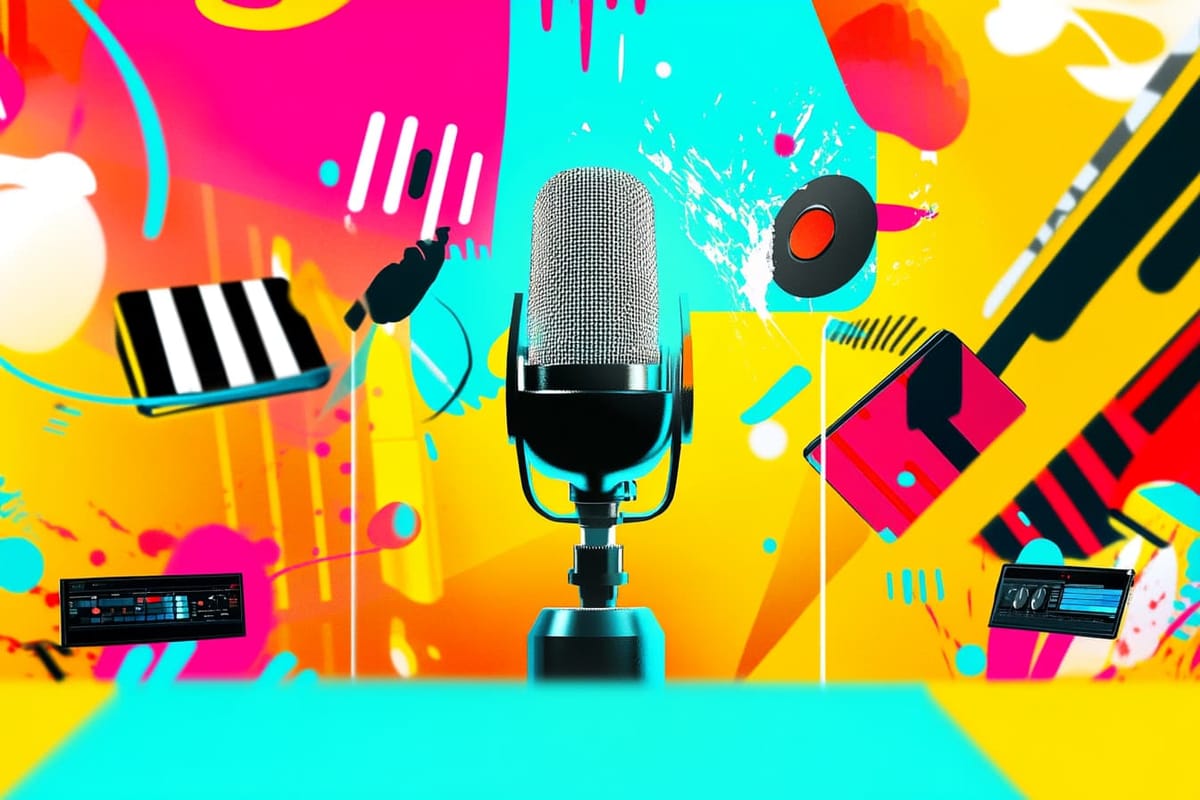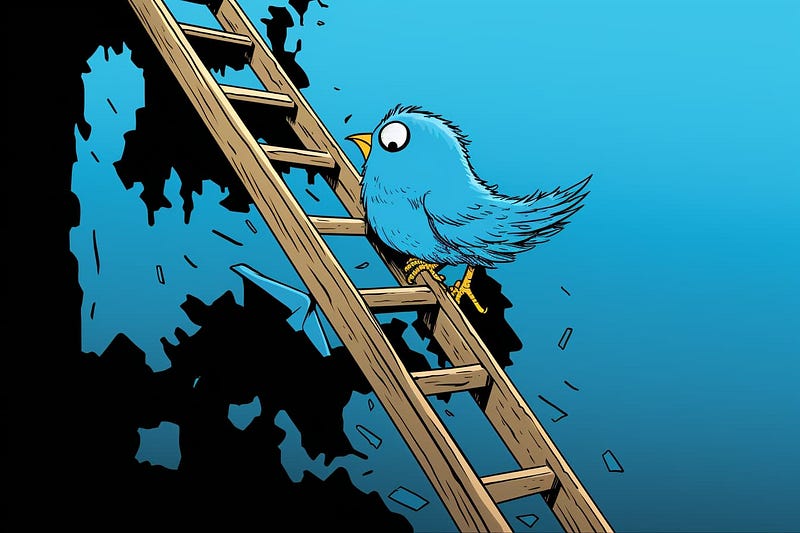How to Use Podcast Guest Appearances to Market Yourself
Here's what you need to know.

I love podcasts, and at one point in my life, I thought I would host one. Earlier in my career, I did a lot of on-site training and led conferences, so I'm comfortable talking about topics I know well.
But the more I dug into podcast production, the more I realized that the logistics weren't a good fit for me (at least not right now). However, I realized a few years ago that podcasting is a very effective way for me to market myself — even if I'm not the host. I reach a new audience and end up with a lot of content I can reuse. My goal is to appear on 12 podcasts per year (which I did last year and am on track to do the same this year).
If you are interested in being a podcast guest (and like to talk!), here's what you need to know.
Find and pitch podcasts
There are several sites that act as a "matchmaker" between podcast hosts and guests, such as PodMatch and MatchMaker.fm. You can create a profile and be matched based on your areas of expertise. I've created profiles before, and you can end up with low-quality requests, like from podcasts that aren't well-established or podcasts that want you to pay to be a guest.
I don't like to be a guest on brand new podcasts, unless they're backed by a well-known production company. The host typically doesn't have a good process in place, and the conversations can be awkward — though you may need to do a few of these to get some experience as a guest.
One of the best ways to find podcasts is through LinkedIn. Many hosts, especially in the business, solopreneur, and marketing categories will share episodes when they're released. If I see one that might be a good fit, I'll listen to an episode or two. Because the marketing industry is small and it feels like "everyone knows everyone else" I'll try to find an episode where I know the guest.
Then, start interacting with the host on LinkedIn. Send a DM and say that you listened to the episode with so-and-so, and say what you liked about it. Continue interacting with the host for a period of time, so you stay on their radar. After you've interacted for a while, send your podcast pitch. I'm not a fan of cold pitching (even in my own business), and I know some podcast hosts are very annoyed by this. The only time I'll cold pitch is if a host explicitly says, "I'm looking for podcast guests."
But warm pitching is very different. Often, hosts are grateful for the pitch (one less thing for them to — find a guest for a future episode!). Once I've identified a podcast, I'll look for information on pitching, which is sometimes on the podcast's website. If I can't find anything specific, I'll send the host a DM on LinkedIn and ask if they are interested in letting me be a guest. I'll include a topic or two that I think would be a good fit for their audience.
About 90% of the time, I get a "yes" from the podcast host.
Preparing for the podcast
If you've never been a podcast guest before, you'll quickly learn that hosts typically ask for a few things, so it's helpful to have them ready.
1) A high-resolution photo. Podcast hosts will create cover art for the episode, which often includes the guest's photo.
2) A short bio. Bios do two things. First, the host will use your bio to introduce you on the podcast (such as your role and the company you work for). Second, your bio will often appear in the show notes.
I'll check the bios from published episodes to get a feel for what the host typically includes. Then I have several variations of my bio pre-written and I'll send the one that's most appropriate (and tweak it if necessary).
3) Links to your social profiles and website. Good hosts know that their listeners may want to connect with you. They'll include links in the show notes. Some hosts will happily include links to multiple social profiles (LinkedIn, Threads, X/Twitter, etc) so that listeners can follow you on their platform of choice.

Always, always include a link to your website. You'll get some SEO benefits from the backlink, which will boost your website's overall authority.
If you discuss something specific on the podcast — such as a resource you created or a blog post you wrote — ask the host if they can include that link in the show notes. That way, listeners can easily find the thing you referenced.
Hosts will request this information in different ways. Some will want it upfront as soon as you schedule the podcast recording. Others will ask that you send it over as soon as the recording is completed. Make sure you provide everything promptly so it doesn't hold up podcast production.
Every host will record the podcast differently. Some may use specific podcast recording software; others may simply use Zoom. Make sure you're clear about how the recording will take place, and test your equipment in advance. Also, ask the host if the podcast will include video or audio only. Many podcast hosts now add a video of the recording to YouTube.
Promoting the podcast
The podcast host will usually send you assets, such as links to the episode's landing page, visual assets, audio clips, and more. They want to make it as easy as possible for you to share and promote the podcast.
Usually, I don't get much notice — I'll get the assets and links the day the episode is published. I'll do my best to quickly reschedule any existing social media posts so I can promote the podcast instead. I'll also include a link to the episode in my newsletter.
In some cases, the hosts are surprisingly bad at promotion. I'll find out that the episode was published when I'm tagged on social media and don't receive any assets. If that's the case, I don't go out of my way to promote the podcast.
But that doesn't mean the interview has gone to waste. The audience will still hear the episode, and I'll use the podcast content in other ways.
Repurposing the podcast for myself
Once the podcast episode airs, I will download the transcript if it's available or create my own from the audio, using an AI transcript tool.
From the transcript, I create several additional pieces of content that are entirely mine and not affiliated with the podcast in any way.
- I'll write a blog post based on my half of the conversation
- I'll pull out some of my main ideas, add them to a template in Canva, and publish them as an image-based post
- I'll create some short video scripts. Maybe my phrasing wasn't right in the podcast itself, but the idea was there. I can record it as a new video.
My content repurposing is automated. Once I upload the transcript to a specific folder on my Google Drive. Zapier [affiliate link] picks up the transcript and runs it through ChatGPT with some prompts for the additional content. I output the results to Trello, which is what I use for project management.
⚙️ Tools to Promote Your Podcast Guest Appearances
Is podcast guesting an effective marketing tactic?
I've never gained thousands of new followers after a podcast episode aired. Nor have I ever seen a huge spike in traffic on my website.
But there are some signals that podcast guesting is worth the effort. I'll get DMs on LinkedIn that start with, "I heard you on XYZ podcast..." I benefit from the exposure to the host's audience, even if the results aren't immediate. Plus, as I mentioned, I benefit from the backlink to my website. All in exchange for about an hour of my time.
I also believe that podcasting is a form of proprietary content that will become essential in the future. In a world where writing, audio, and video can be generated by AI, proprietary content will stand out because it's unique.
For me, it's worth the effort to research and pitch podcasts. Podcast guesting is one tool in my overall self-promotion toolkit.
You can use automation to repurpose your own content in MANY ways. Here is a list of ideas, plus the instructions you need to set up automation.






